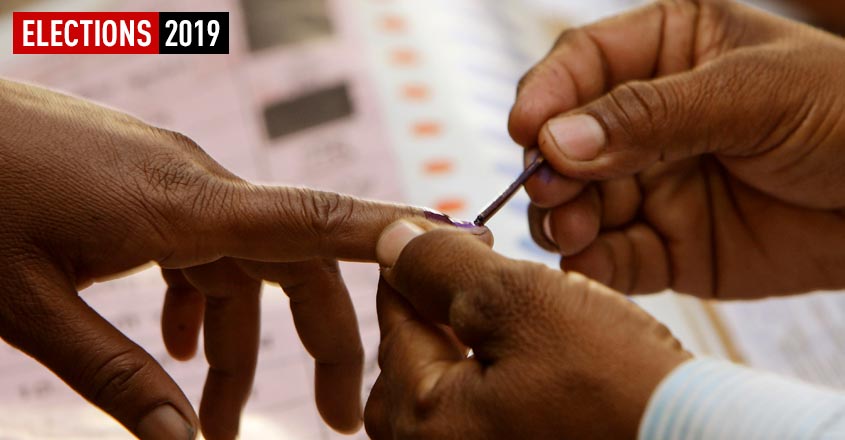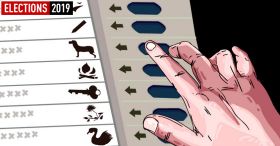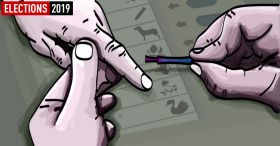
Kannur: Preparations for polling on Tuesday are complete for all the 20 Lok Sabha constituencies in Kerala and 96 other seats elsewhere in the country. Formal campaigning concluded yesterday at 6pm.
With barely hours left for polling to start, the election officials in Kerala are getting ready for their crucial duty. Today they will be collecting from the designated centres all the paraphernalia, including the electronic voting machine and VVPAT case, required to conduct the poll. Among the stationery items they will be carrying to the booths are a cup, matchbox, gum, blade, pin and sand. In fact, these apparently trivial materials are crucial for enabling a smooth casting of votes and election officials, who are more tense than candidates on polling day, are leaving nothing to chance.
Each polling booth is allotted two bottles of indelible ink for marking on the fingers of voters. In case the ink in one bottle is spilled, the polling should be suspended till the other bottle is brought. In order to avoid the delay, the ink bottle is kept in a cup with sand filled in it to ensure that it remains firm.
Officials in each booth have to handle 92 equipment and other materials, including the electronic voting machine unit and VVPAT machine.
Among the other items required are voters' slip, envelopes of various colours, pencil, rubber band, cello tape, gum, scale and cotton to wipe spilled ink.
Reporting time
Election officers should reach the distribution centre by 8 am on April 22 and collect these materials. From then onwards up to the time they submit all the sealed records to the Election Commission (EC) after completing the voting, the officials are virtually in the ‘custody’ of the Commission.
Officials can travel to the polling station only in the vehicle allotted by the EC. They should reach the place during daytime and before 4 pm. On the way to the booth, the officials have to purchase medicines and other items for personal use. After reaching the polling station, they will not be allowed to venture out. If they have to go out for food, they should even then keep an eye on the election materials. Moreover, of the four officials at a centre, while two go for food and morning ablutions, the other two have to remain with the polling items.
Arrangements for voting have to be made at the booth on the previous day itself. But officials should not stay awake late into the night for the purpose. Ideally, they have to sleep by 10 pm at the school or anganwadi itself where the booth is set up. If the presiding officer feels that the place is unsafe, he can arrange the stay for women officials at nearby houses or houses of acquaintances.
D-Day
On polling day, officials have to wake up by 4.30 am and get ready. They should conduct a mock polling from 6 am and cast at least 50 votes in the electronic voting machine to ensure its accuracy.
Voting should be allowed only from 7 am to 6 pm. After the polling ends, sealed covers and unsealed covers as per EC’s instructions and all the equipment have to be returned to the same centre from where they were provided. After this is done, the election officials can head home by around 11 pm.
Duty evasion
As it is a very important responsibility involving much stress, the EC received around 1,000 requests from officials seeking exemption from polling duty. The officials cited reasons like grave health problems as well as vacation tours for which tickets were booked much earlier. Many officials were also reluctant to work in sensitive booths.
A team led by the respective District Medical Officers examined officials who cited health reasons and the EC gave exemption to officials who suffered from serious diseases. Breast-feeding women too were exempted from polling duty. The EC told all others that they should somehow bear all the trouble as there was a severe shortage of election officers.





